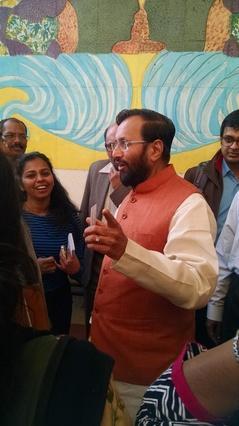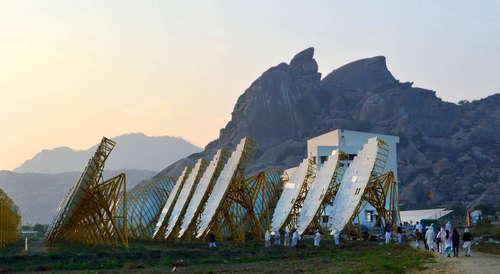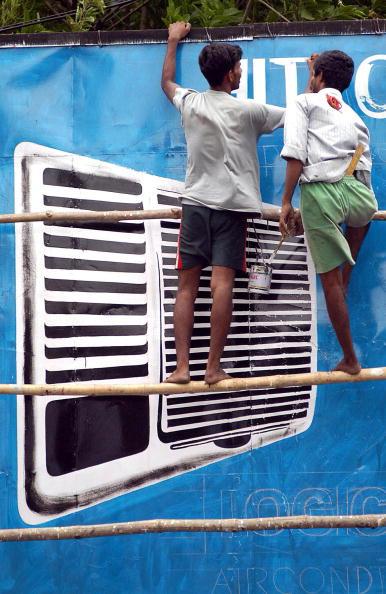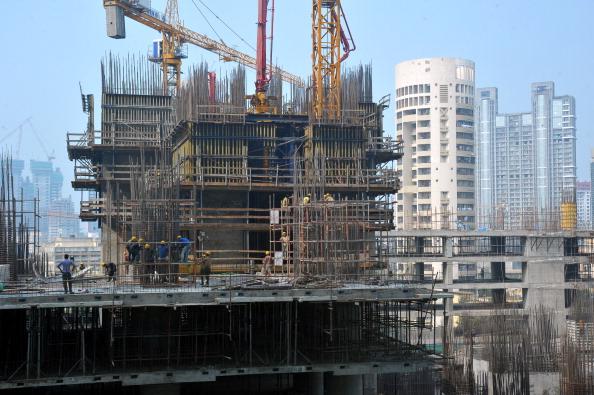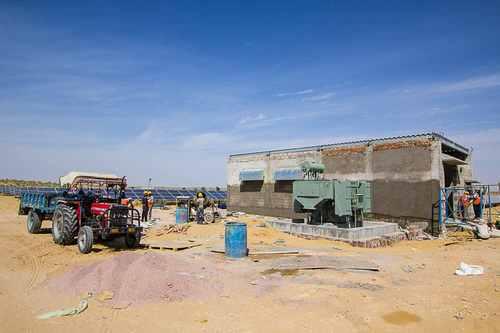On Friday, I attended Environment Minister Prakash Javadekar’s press conference in Delhi before he departed for the 20th UN climate conference of the parties (“COP 20”) taking place in Peru’s capital, Lima. Minister Javadekar described the Lima conference as a “milestone,” stating that “it should build trust and foundation for the 2015 global climate agreement” in Paris.
As Minister Javadekar emphasized, India has a rapidly growing economy and is tackling the pressing challenges of development. But India also recognizes that rapid deployment of clean energy can actually boost economic growth and help address big domestic issues such as energy security, energy access and rising energy demands, in addition to lowering carbon emissions. In these ways, domestic action to shift to a low carbon economy can be a win-win for India, whose people, cities and long coastlines are some of the most at risk to the impacts of climate change.
At the press conference, Minister Javadekar highlighted the many domestic actions that India is taking to fight climate change, which we also summarize in our updated factsheet, “India: Addressing Climate Change and Moving Towards a Low-Carbon Future.” As it develops, India is moving to reduce emissions intensity to protect its people and environment, and the Modi government is poised to continue leading these efforts. India has made significant commitments to clean energy and a sustainable economy, including ramping up the existing target of 20 gigawatts (GW) of install solar energy by 2022 to a new ambitious solar target of 100 GW.
The 100 GW solar energy target—almost half of India’s total electricity generation capacity in 2013—reveals tremendous opportunities for solving India’s energy crisis through clean energy. Solar and wind energy, along with energy efficiency investments, are vital to diversifying India’s energy mix and are a viable means to meet demands for clean, affordable energy that creates jobs. The Modi government’s increased efforts are a step in the right direction – though like many countries, much more needs to be done, especially to protect communities that are the most vulnerable to climate change.
As Minister Javadekar’s press conference underscored, India’s voice is key in these international climate negotiations. India appears to be taking a much more active role in Lima than it has at past climate talks. Having the country that represents the world’s largest democracy, the second-fastest growing major economy, and the second largest population engaged in these discussions demonstrates a willingness to work toward a global deal on climate change. India’s domestic leadership to scale clean energy and shift toward a low carbon economy to support its communities exemplifies how local action on climate change can be a win-win for developing countries, and build a foundation for the 2015 climate talks.
This article was originally written and published by Anjali Jaiswal with contributions by Meredith Connolly, NRDC Energy Law and Policy Fellow, for NRDC Switchboard blog. For the original article and more information, please click HERE.
